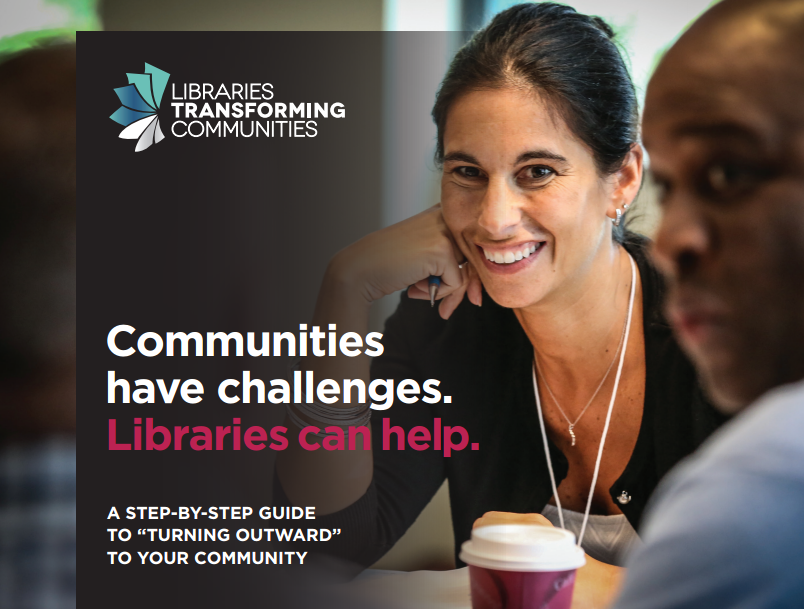Posted on November 2, 2015
By Susan H. Hildreth, Executive Director, Califa Group, Pacific Library Partnership, Peninsula Library  System, and Administrator, NorthNet Library System
System, and Administrator, NorthNet Library System
I believe that the future relevance and success of the public library is dependent upon the library’s deep knowledge and commitment to community growth and success. Although many libraries have had stated commitments to community priorities, I do not think that we have been disciplined or strategic in effectively deploying the library’s assets to support those priorities. I want to highlight two resources funded by the Bill and Melinda Gates Foundation that can provide a framework for integrating community insight into the ongoing program of the library.
The Aspen Institute produced Rising to the Challenge: Re-envisioning Public Libraries. The report provides a discussion framework to identify ways communities can leverage investments in their libraries—essential public institutions—to forge new partnerships and build stronger communities including four strategies for success.
Aligning library services in support of community goals is possibly the most important strategy for success. Public libraries that align their services to bolster local objectives will find the greatest opportunities for success in the years ahead. This will require a level of flexibility and adaptability to change as community needs change. It will also require collaboration among libraries, policy makers, and community partners to redefine the role of libraries as institutions that inspire learning, drive development, grow social capital, and create opportunities.
The second resource, Libraries Transforming Communities (LTC), is an initiative of the American Library Association (ALA) that seeks to strengthen librarians’ roles as core community leaders and change agents. LTC is focused on libraries becoming more reflective of and connected to their communities and achieving a domino effect of positive results, including stronger relationships with local civic agencies, non-profits, funders and corporations,and greater community investment in civility, collaboration, education, health, and well-being.
The Harwood Institute for Public Innovation, ALA’s partner in this effort, promotes the “turning outward” approach that emphasizes changing the orientation of institutions and individuals from internal (institutional) to external (community facing). This process entails: taking steps to better understand communities; changing processes and thinking to make conversations more community focused; being proactive to community issues; and putting community aspirations first.
I would encourage library staff, trustees, community supporters, and policymakers to review these resources. They can provide the framework for critical conversations that will create the commitment to embed our libraries in their communities.This action will ensure both the well-being of the community and the library.Air Jordan 1 Retro High OG Wmns “Panda” CD0461-007 Women/Men Super Deals, Price: $98.03 – Air Jordan Shoes


